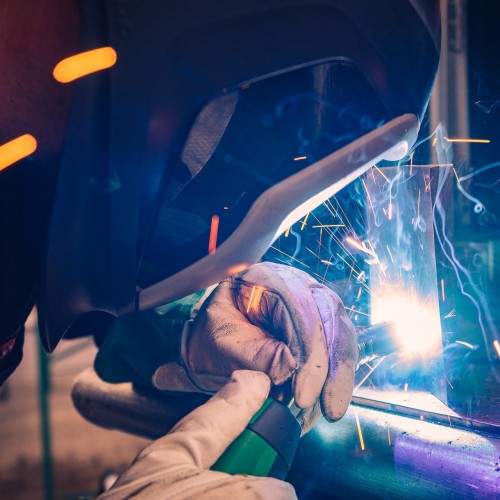
Posted on March-03-2020
As you may have suspected from the term ‘cold welding’, there isn’t any heat involved. Cold welding is the process of joining two metals or materials together without using any heat.
Now, this may sound impossible and contrary to everything you previously thought you knew about welding. But, it is possible to bond metals without heat, and cold welding is actually one of the most popular welding methods out there. Alongside, the more commonly recognised and known: arc welding, friction welding, laser welding and ultrasonic welding.
Cold welding, also known as cold pressure welding or contact welding, is a solid-state welding process where the joining of two metals takes place without fusion or heating at the interface of the two parts being welded together. This means there is no liquid or molten phase present in the joint and joining process. The technique was first recognised in the 1940s, growing in use and prominence during the age and advancements of space travel and exploration.
The process of cold welding works by using pressure to join two metals or materials. Generally speaking, when two metals are pressed together they don’t weld to each other. This is mainly due to there being an oxide layer or thin barrier on the surface of the two materials which prevents them from diffusing together.
However, cold welding overcomes this by preparing the metals beforehand. This preparation involves cleaning and brushing the metals to such a high degree that this top barrier or oxide layer is removed.
Through degreasing and wire brushing the metal before the welding takes place it enables a desirable clean surface in which the metals can be pressed together with the right amount of force and thus welded together.
Cold welding material tips: the materials must not have undergone severe hardening and must be ductile. Soft metals are often the best choices for cold welding.
The most common application for cold welding is welding together wires. This welding method can ensure perfectly welded wires since there is no heat involved, and be carried out quickly. Cold welding is mainly used with aluminium, copper, zinc, 70/30 brass, nickel, silver, silver alloys and gold.
Through fusing metals and materials together without the aid of any liquid or molten phase, astronauts can work quickly and effectively outside of a spacecraft. Meaning they can carry out any necessary repair work needed in space.
If you’re interested in learning more about welding in space, you can read our related blog article which provides further insight into cold welding.
If you’re interested in the hire or purchase of welding equipment, please give us a call today on 01213 272 249 or fill out our simple online contact form, and one of our friendly team will be in touch.